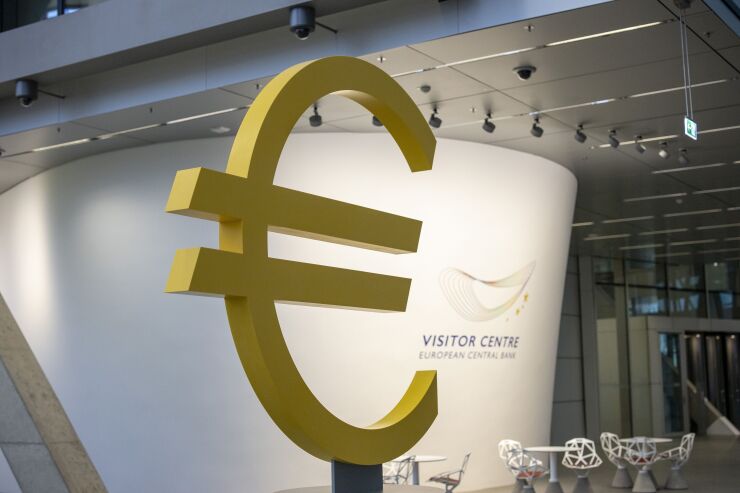Isolationist politics are creeping closer to the payments industry, with European banks threatening to build a localized payment ecosystem to push back against the major American card brands.
The planned European network, called the Pan European Payment System (or PEPSI), includes 20 European banks and has the tacit backing of the European Central Bank. There's no formal announcement, but PEPSI would be a catchall counterweight to cross-border mobile payment fintechs, challenger banks, blockchain startups, cryptocurrency and the cloud, and other initiatives that the incumbent financial services industry sees as threats.
PEPSI would be a rival to Visa, Mastercard, PayPal, other American payment brands, and U.S.-based data giants such as Google and Amazon. The ECB did not return a request for comment, but multiple European media outlets quoted Carlo Bovero, the head of global cards at BNP Paribas, referring to the initiative at a conference.

European politicians have floated the idea of creating their own payments system before. Just a few months ago, Deutsche Bundesbank board member
The ECB and PEPSI are hardly alone, as traditional authorities are taking a harder line against alternative payment initiatives, whether it’s Facebook’s Libra, Apple Pay or challenger banks.
The EU is reportedly moving closer to investigating
Central banks around the world are also building digital currencies, again to counter what they see as a threat to monetary sovereignty by blockchain-based currencies such as Libra.
PEPSI’s advocates suggest another indirect threat, with media reports saying Europe needed its own payment system to counter an “
“Certainly PEPSI could have an enormous impact on EU payments if the ECB and EC put their considerable shoulders behind it and if banks seriously commit to a politically driven payment system,” said Eric Grover, a principal at Intrepid Ventures. “EU regulators are viscerally hostile to dominant U.S. payment franchises like Visa and Mastercard. They’re spooked by the prospect of Libra.”
Politics is just part of the battle, as challenger banks have expanded quickly over the past few years, often gaining hundreds of thousands of enrolled customers and drawing funds from
These firms started as mobile payment providers, using U.S. card brands to support transactions, and their growth adds to the U.S. card networks’ scale.
“These challenger banks are distinguishing themselves by providing payment services — that’s how they entered the market, as a glorified general purpose reloadable accounts,” said Richard Crone, a payments consultant. “So directly or indirectly, Visa and Mastercard have new distribution channels.”
PEPSI would face an uphill battle, considering most European banks issue Visa and Mastercard, and Apple Pay and PayPal have made major inroads among European consumers and merchants. And international payment networks don’t expand overnight.
“Building a network of last resort is a difficult and expensive endeavor,” said Sarah Grotta, director of the debit and alternative products and advisory service at Mercator. “Getting enough consumers and merchants behind the solution to create the network effect, plus all of the required infrastructure, operating and regulatory considerations is an undertaking that will take many years to develop.”





